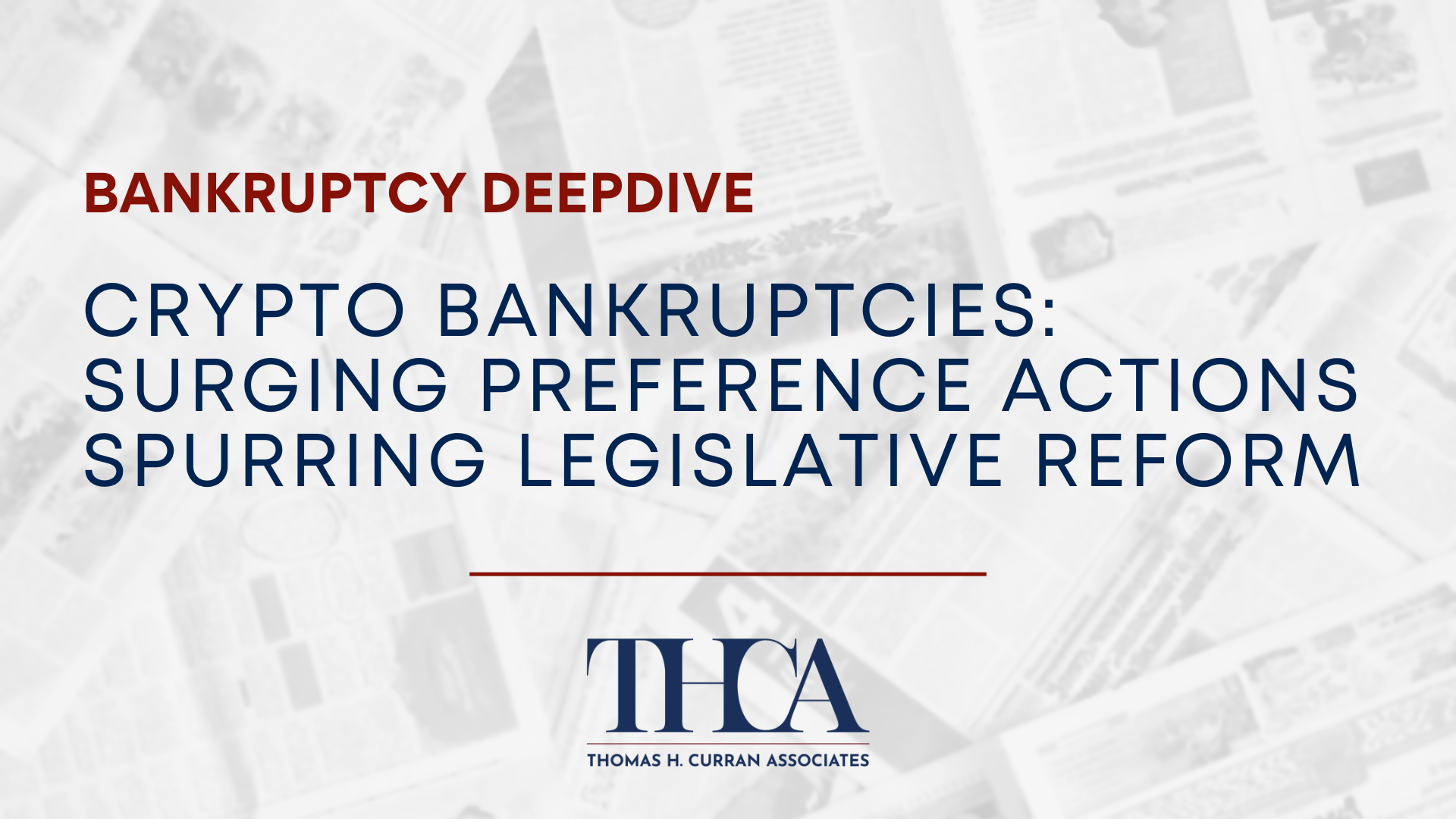The crypto sector continues to reel from the cascading bankruptcies of 2022. As firms like FTX and Celsius moved through Chapter 11 proceedings, preference actions gained prominence. Bankruptcy trustees and debtors-in-possession leveraged Section 547 of the Bankruptcy Code to claw back payments and withdrawals made to creditors and account holders in the 90 days before the bankruptcy filing by arguing that these transfers unfairly favored certain parties during a period of insolvency.[1]
In recent digital asset firm bankruptcy proceedings, clawbacks have been aggressively pursued to maximize the bankruptcy estate for all creditors. For instance, in July 2024, the Celsius Litigation Administrator began filing lawsuits against account holders who made substantial withdrawals in the 90 days before the bankruptcy filing.[2] However, tracing digital assets and identifying when a highly volatile firm became insolvent pose unique legal challenges.
As the complexities of navigating the field of crypto regulation and bankruptcies have come to the forefront, it has spurred a push for legislative reform. On July 17, 2025, the House passed the Digital Asset Market Clarity Act, which seeks to establish clear legal procedures for cryptocurrencies.
A key doctrinal advance in the CLARITY Act’s provisions is mandating custody rules, which in part require qualified custodians to segregate customer wallets using multi-factor key management and deliver annual SOC-1/SOC-2 audits.[3] These rules directly respond to the FTX collapse, where commingled assets erased billions in customer value.[3] These reforms aim to prevent complex legal battles, like preference actions, by classifying segregated holdings as bankruptcy-priority customer property.[3] This bill now heads to the Senate for further consideration and refinement.
Navigating the complexities of digital asset firm insolvency proceedings and clawback demands requires unique industry knowledge and experience. If your business is facing such demands or filing for insolvency, consulting counsel early is crucial. THCA has extensive experience counseling businesses through bankruptcy and prosecuting and defending preference actions in complex cases, including those involving cryptocurrency and digital assets.
For more information, please contact us at +1 (617) 207-8670 or visit https://thcalaw.com/contact/
Sources:

